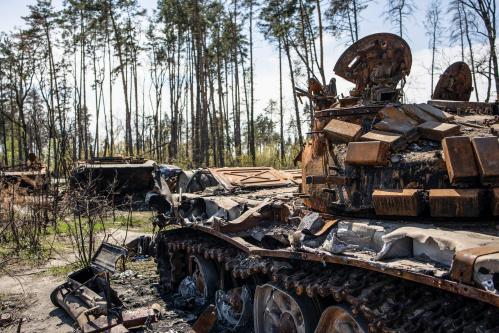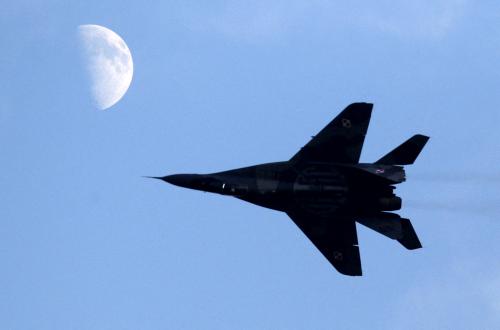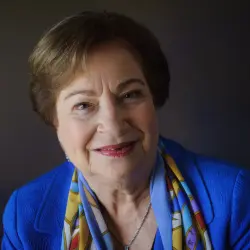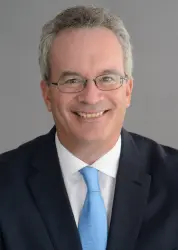On May 9, Brookings experts James Goldgeier, Amy J. Nelson, Steven Pifer, and Angela Stent discussed the current state of the Russia-Ukraine war and what could be coming following Victory Day celebrations in both countries. Goldgeier moderated the Twitter Spaces conversation.
 Angela Stent (@AngelaStent)
Angela Stent (@AngelaStent)
Nonresident Senior Fellow, Center on the United States and Europe
“There was a lot of speculation that [on Victory Day] we were either going to hear [from Russia that] this is all out war or we were even going to hear maybe it’s time to sit down and negotiate, mission accomplished. We got none of that. We got a very aggressive speech from [Russian President Vladimir] Putin. He reiterated the talking points that we’ve had almost since the beginning, that this was a preemptive war to protect Russian-controlled territories, Crimea and the Donbas, from being taken back, from being overrun by the Ukrainian Nazis and NATO. So nothing new there. I think what it means is Putin made it clear they’re going to succeed. They’re not done yet. We are going to get more of the same. In other words, this grinding war that’s continuing where the Russians are trying to take the entire Donbas but are not having much success, the Ukrainians are pushing them back. But of course, the brutality is absolutely staggering. And we see no prospect of any negotiations, at least from Russia’s point of view. But the one thing that was noticeable was the acknowledgment that there have been heavy casualties and reaching out to the families of the dead soldiers and saying that there will be financial compensation for them, which there has been all along, but at least acknowledging the fact that there are these losses because the body bags are coming back, the funerals are happening. And a lot of these families are asking, ‘How did my son die? What happened?’”
 Steven Pifer (@steven_pifer)
Steven Pifer (@steven_pifer)
Nonresident Senior Fellow, Center for Security, Strategy, and Technology and Center on the United States and Europe
“What Russia has done in the last eight years, but in particular in the last 11 weeks with this unjustified, unprovoked military assault on Ukraine, has galvanized NATO. Finland and Sweden, two countries who have embraced neutrality for decades, are very likely in the next six weeks to formally apply to join NATO because they calculate that their security interests will be better served within NATO. Going back to the 1990s and even in 2002 and Putin himself agreed at the Rome 2002 NATO-Russia summit to try to work to build a better NATO-Russia relationship. But the Russians really didn’t put much into that effort. At this point in time, I don’t see how you build a [European security] architecture that both sides can sign on to and in particular with, again, as word of war crimes and atrocities [spreads]. This is going to make it very hard, I believe, for Western leaders to engage in a normal way with Vladimir Putin.”
 Amy J. Nelson (@amyjnelsonphd)
Amy J. Nelson (@amyjnelsonphd)
David M. Rubenstein Fellow, Center for Security, Strategy, and Technology
The nuclear saber rattling has been front and center coming from Russia during this conflict, almost setting the United States and the West back on its heels in what would seem to have given him first-mover advantage early in the conflict. The West [was] not wanting to antagonize, aggravate, or otherwise irritate Putin and standing back to see what he’s going to do next. Fortunately, the speech [on May 9] was a whole lot of nothing in terms of saber rattling. It was considered highly non-escalatory. There’s no new threats in there and there are really no meaningful, useful, or beneficial targets for the use of a nuclear weapon in this conflict in western Ukraine or otherwise that that make that would help Putin achieve his end of annexing parts or all of Ukraine.”
 James Goldgeier (@JimGoldgeier)
James Goldgeier (@JimGoldgeier)
Robert Bosch Senior Visiting Fellow, Center on the United States and Europe
“We’ve seen from [Ukrainian] President [Volodymyr] Zelenskyy the ability to rise to the occasion as a wartime leader, to show bravery too. To be able to communicate effectively. To rally his population. To make sure the troops know that he’s there with them. His government’s with him. They’re doing everything they can to support him. The contrast just couldn’t be starker with Putin. The ability of Zelenskyy to be this wartime leader and Putin unable to do that to any real degree is a stark comparison.”
The Brookings Institution is committed to quality, independence, and impact.
We are supported by a diverse array of funders. In line with our values and policies, each Brookings publication represents the sole views of its author(s).








Commentary
A Victory Day update on the Russia-Ukraine war
May 16, 2022